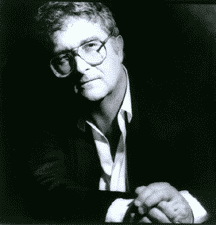
1-0 Reviews
Randy Newman
|
Albums: |
 |
Links: |

|
Albums: |
 |
Links: |
Randy Newman Live1971
Randy Newman: |
Stop-gap album released to (hopefully) provoke Newman's minimal fan base. Documents the best of a three night engagement at NYC's Bitter End club.
Although many of Newman's albums feature full orchestras and brass, his music is rooted in traditional parlor room popular music, with only a piano and whomever might be around to sing. Most of the songs on this album are from his first two albums, though two were teasers for Sail Away, and another two only appeared on this album. The modest audience obviously likes the songs, and the intimate setting really brings out the timelessness of the music. Newmans takes requests, and generally seems to enjoy the spotlight. Not required listening, but reinforces the simple genius of these songs.
Representative tracksMama Told Me Not to Come: From 12 Songs, this song seems a little more rolicking here, than on the earlier album. The whole set is pretty pleasant, and that may be a plus or a minus, depending on how you like this kind of music to sound. Cowboy: From the first album, the small setting gives this tune a slightly more somber feel than the original. It's interesting that Newman often plays concerts alone, without an orchestra. Perhaps the music on this album is more representative of the real feeling he wants to present. |
